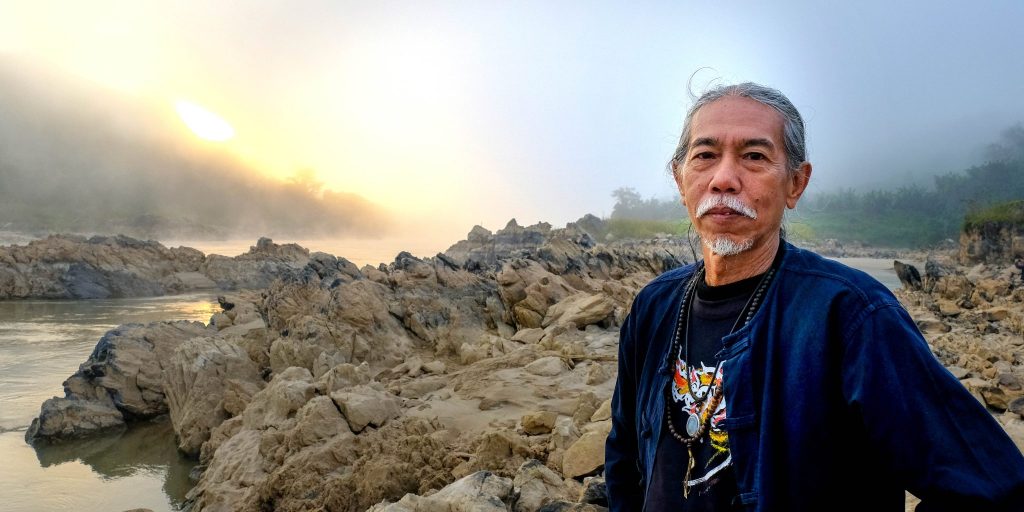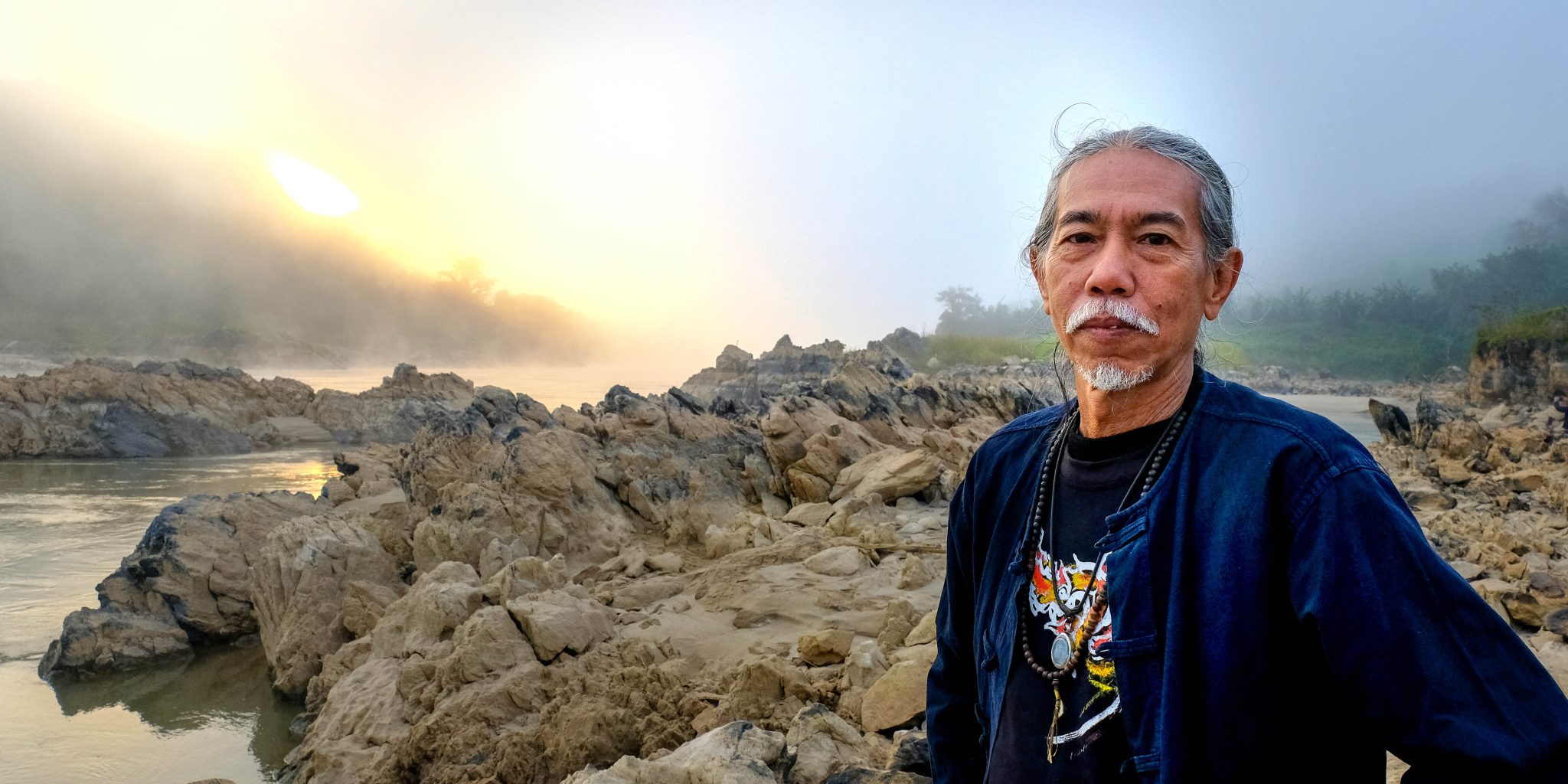
Niwat Roykaew is a riverperson. He is also Director of Waterkeeper Affiliate Chiang Khong Conservation Group. He was born in Chiang Khong District in northern Thailand. The Mekong River thrived with abundance near his childhood home.
On its way from the Tibetan plateau to the South China Sea the Mekong gathers water and binds together 10’s of millions of river people from six countries and dozens of distinct ethnic groups. The seasonal changes in flow determine fish migration, paddy rice farming and the resulting cultural practices and spiritual beliefs integrated into daily life and livelihoods.
In 2000 China, Myanmar, Lao and Thailand signed a navigation agreement to ‘improve’ 361km of Mekong River between southwestern China and Luang Prabang, Lao. The plan for navigation of 500 tonne barges in all seasons included extensive riprap and barge moorage installation along the entire section. Giant concrete walls would be built to redirect the river’s flow. Shallow sections would be dredged. Many dozens of islands and rocky reefs would be dynamited, and the rubble dumped into deep channels or deposited along the shore.
Along the 97km of Mekong River that mark the Thai-Lao border near Chiang Khong – Niwat started to organize. In February 2020 the Thai government canceled the ‘blasting the rapids’ and dredging portion of the navigation agreement. The government’s reasoning is not clear but is suspected to include concerns about Thai sovereignty in addition to economic and ecological impacts. What is clear is that significant numbers of people in all sectors of society, and a majority along the 97km, did not want it.
There is a more than 20 year history of organizing and uniting rural villages along what was considered a frontier area in rural northern Thailand. The story of how the movement grew to engage academics, youth groups, local officials, and Bangkok elites is rich and complex. The history includes transforming a potentially violent water conflict between villages into the restoration of an entire watershed. Bringing representatives of a mainstem Mekong dam engineering company, and of the Lao and Thai governments to meet with local villagers in the open-air riverside office of the local network. Supporting multiple communities to organize and change top-down development plans that would have industrialized their communally-held seasonally-flooded fish and forest conservation zones.
These and many other local campaigns created a shared knowledge base, regional relationships, and an understanding of human equality. This network made it possible to confront and defeat an international agreement with the world’s second largest economy. It’s hard to overstate the significance and impact of this accomplishment for local people and the Mekong River. There is a sense that now anything is possible.
For these decades of work resulting in the cancellation of the ‘blasting the rapids’ project Niwat Roykaew is awarded the Goldman Environmental Prize for 2022. The Goldman Prize honors, “people of ordinary backgrounds doing extraordinary things to save our Earth.” The prize is, “the world’s foremost award honoring grassroots environmental activists, recognizing outstanding leaders from each of the world’s regions. Goldman Prize winners prove that we can re/shape the Earth’s future.”
Niwat and the Chiang Khong Conservation Group founded the Mekong School: Institute of Local Knowledge in 2015. Mekong School’s research library and online platform are launching in late May 2022. Niwat invites all people working for local empowerment and free-flowing rivers to visit the Mekong School online or in person to continue this work.
“It is important to create a common understanding that the natural environment is without borders. The whole world owns it. And the people of the world must help each other to maintain it. These matters must be resolved together through the voices of the whole world. It will no longer be just the voices of the Mekong River. It will be the sound of the other watershed people who come together. This is what we want to happen.” – Niwat Roykaew
Read more on the Goldman website here.


